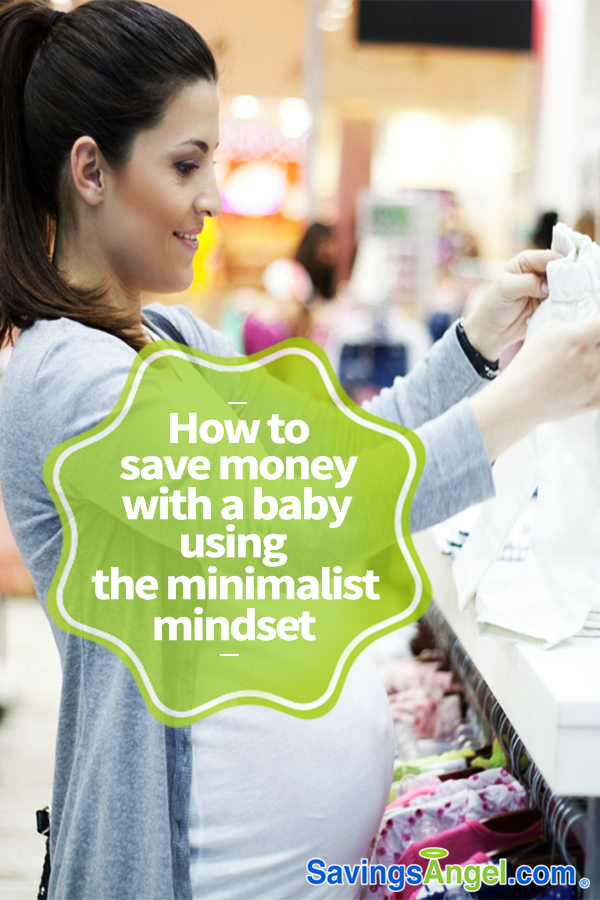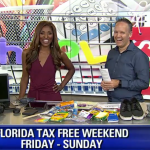 How to save money with a baby using the minimalist mindset
How to save money with a baby using the minimalist mindset
The minimalist mindset can come in handy when preparing for a new baby. The simplicity of it is to only have – and thus only spend on – what you truly need. So when it’s time to start feathering the nest… here’s how to save money with a baby using the minimalist mindset.
I’ve got both things to avoid and things to shop for, plus the encouragement that if you – and those who wish to bless you – spend less money on excess items, there is more to put away for a future use or to splurge on that one dream item.
Here are 5 categories of things you shouldn’t bother to buy or register for:
(1) Things you’ll never really use or end up hating to haul around: This includes baby items like specialized diaper pails and complicated play gear. You absolutely need a way to contain the smell of diapers but an expensive system with special bags isn’t necessary. And as for play gear, you do need one simple piece of your choosing, like a bouncy seat, but you shouldn’t need more than one.
(2) Things your baby hasn’t even tried: Rather than buying items like a baby swing or a fancy play bouncy with numerous attached toys, have them try one out first when they are actually big enough for it. They might hate it and start screaming. Trying things at a friend’s house or at a baby gear store a few times before buying could save you hundreds.
(3) Numerous outfits: It’s very easy to get carried away with the cuteness of clothing choices. But having too many clothes is not only a waste of money, it can create stress. More clothes to wash, more outfits to make sure baby wears before they outgrow them. Plus, more to sort through once they do outgrow them. Instead of going overboard or letting others go overboard, keep close track of what you’ve accumulated. Count out the pieces and determine what you feel is reasonable for about 2 weeks’ worth of clothing.
(4) Small-sized clothing: Watch your sizes. Babies grow fast and you may find yours outgrowing clothes before you get much use from them. It’s reasonable to figure your little one may need a different size approximately every 8-12 weeks in their first year or even two. Vary clothing sizes to allow for growth and minimize waste.
(5) Matching nursery items: Will baby get upset if the pink kangaroo bumper pad doesn’t have the matching light switch cover? No. And what if, in about 2 years, baby hates the theme? Save the money and go simple.
Here are 3 categories of things you should plan to buy or register for.
You can save on all baby’s needs by using available coupons and earning cash back at SavingsAngel.com/Swagbucks.
(1) A reasonable amount of clothing: Among them, you’ll want a few new pieces, but don’t to pay full price. Comb clearance racks and use coupons. You can even comb secondhand stores for new pieces. It’s not uncommon for both online and local secondhand retailers to receive pieces still new with tags. For everyday wear, consider used clothing. After all, babies soil clothing frequently. And then, when you only spend $1 on a piece and it’s very soiled, you won’t feel bad just throwing it away when it won’t come clean.
(2) A good, safe car seat: This is one piece most experts agree you should only buy new. The reason is that you don’t have any assurances the seat has never been damaged or in an auto accident when you buy pre-owned. Also, car seats actually have expiration dates on them. Yes, expiration dates – and they are anything but arbitrary. Manufacturers base the dates on the length of time the plastic they use to make the seat can be safely trusted to do its job. Car seats go through a lot, including hot and cold seasons throughout their use, and the plastic can become brittle or warped over time.
When you buy new, you have a seat with its full life expectancy and no damage. If you do decide to get a used one from a trusted source, still check the expiration date. If you can’t find it clearly printed on the piece, contact the manufacturer with the manufacturing label details to get the correct information.
(3) Plenty of diapers: Whether you’re going cloth or disposable, you’ll need them. By being frugal in other areas, you can afford to have plenty on hand. Others can afford to bless you with them instead of that crib comforter you won’t need – and many say you shouldn’t for safety reasons – even use.


